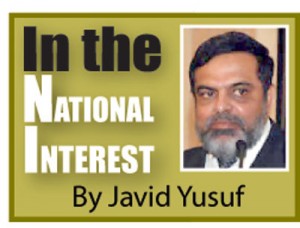News
Despite ‘Civil War’s end its core issues remain unresolved
View(s):The ‘Civil War’ that raged in the country for over three decades, came to an end in May 2009. Yet, the core issues surrounding the conflict have remained unresolved to date. This is a fact that cannot be brushed aside, and needs the attention of the political leaders as well as the country as a whole.
The reasons for such a failure are varied and need to be understood, if the country is to move forward towards addressing the issues that initially fuelled the conflict. Unfortunately, sometimes, the reasons for not resolving this issue are not properly understood and thus create situations that can jeopardise a future resolution of such issues.
A case in point is the statement made by former Provincial Councillor (PC) M.K. Sivajilingam last week, that the Tamil people would not support any Sinhalese or any Southern-based candidate in the forthcoming Presidential Elections.
Clarifying his statement, Mr. Sivajilingam further stated that Tamil people were disgusted by the actions taken by the Tamil National Allaince (TNA) so far. He said the government that came to power in 2015, had already hoodwinked the Tamil people, and the TNA had also done the same to the Tamil people.
Speaking on the forthcoming Presidential election, Mr Sivajilingam stated that Tamils were not in a position to trust any of the Sinhalese leaders.
The Maithri-Ranil Government that came to power with the help of the Tamil people, did the same thing to the Tamils as previous governments had done, claimed Mr Sivajilingam, who does not attempt to hide his admiration of the LTTE.
The former PC member said the TNA has been saying for the past 4 years, that a solution to the ethnic problem would be found within that year, but nothing happened. “This, and their unconditional support to the government has incensed the Tamil people,” he said.
While the majority of the Tamil people may not subscribe to Mr. Sivajilingam’s views, it is still important that his statements are countered in the larger interests of the country.
The reason for the failure of the Constitutional process is hardly due to a reluctance on the part of the Government to address the issues related to the Tamil National question, as TNA Leader R. Sampanthan is fond of referring to the Tamil problem.
It is rather due to multiple other reasons. Firstly, it is due to forces outside the Government, who, for political reasons, continuously refused to cooperate constructively in the Constitutional process. Secondly, it was due to the contradictions with regard to Governance issues, unrelated to the Constitution, that emerged within the ranks of the Government, between the President and the United National Party (UNP).
This was despite the fact that both President Maitripala Sirisena and Prime Minister Ranil Wickremesinghe’s commitment to address grievances of the Tamil community were never in real doubt. While both of them took several steps, which previous Governments were reluctant to take, with regard to concerns of the Tamil community, the major issue of Constitutional reform could not be completed.
The TNA, for its part, recognized the Yahapalana Government as one that was genuinely committed to the resolution of the ethnic conflict, and stuck to its original strategy of working with the Government, despite the painfully slow rate of progress.
The Government may also have made the mistake of structuring the process of Constitutional Reform, in a manner that allowed for more open discussion and participation of various stakeholders, including the Opposition, without adequately understanding the latter’s lack of commitment to Constitutional Reform. The Constitutional Assembly process designed by the Government, may have worked in an environment where all stakeholders were committed to the larger goal of Reform, although they may have differed with regard to the nature and provisions that should go into a Constitution,
As events showed, this was clearly not the case. Although some degree of consensus on peripheral matters may have been reached on the core issues, there has been no agreement between the two main parties. One significant area where the TNA has showed flexibility is their willingness to agree to an undivided and indivisible Sri Lanka, which is a great step forward in designing a new Constitution.
In retrospect, it may have been more useful to have followed the 1972 Constitutional process, where the initial deliberations involved agreement on a set of Basic Resolutions embodying fundamental principles.
This may have ensured that the fundamental principles such as the Executive Presidency, the Unitary State, the status of Buddhism and other religions etc were agreed upon by now, and it would not be necessary to re canvas those matters in a future process.
The approach of Mr. Sivajilingam and others of his ilk cannot only be detrimental to the country as a whole, but even to the Tamil community and other minorities. What is important is, not whether a candidate is from the South or the North, but what he stands for and how likely he is to ensure a just society, where principles of social justice will be enforced.
If such a candidate cannot be identified, the Tamil community or its leaders must, together with other sections of the Sri Lankan community, work towards identifying and promoting such leaders.
Minorities cannot withdraw from national endeavours, merely because things may not be going in their desired way. If minorities wish to be equal citizens in this country, they must share the responsibilities of citizenship equally, and help shape and influence the destiny of the country.
(javidyusuf@gmail.com)

